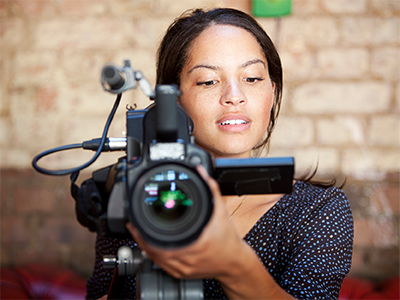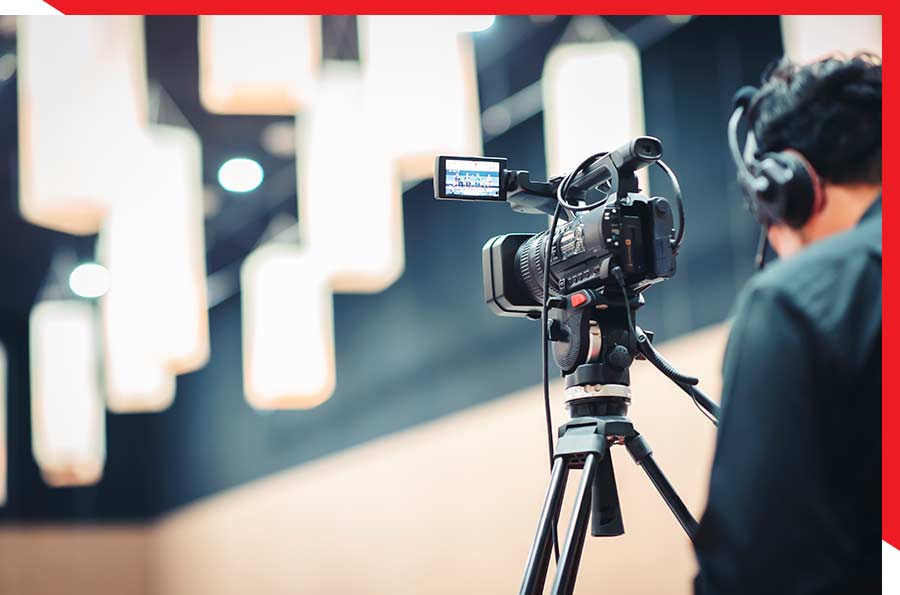The Intricacies of Legal Videography and Its Function in Capturing Crucial Facts for Evidential Purposes in the Legal Area
In the world of the legal area, the utilization of videography has come to be a vital device for catching the ins and outs and nuances that can make or break an instance. From recording crime scenes to taping witness testaments, lawful videography plays a critical function in presenting crucial information with unequaled clearness and accuracy. Past the surface degree of simply videotaping events, there exists a labyrinth of complexities and considerations that must be navigated to make certain the admissibility and credibility of video evidence. Recognizing the technological facets, lawful demands, and tactical effects of legal videography is essential for attorneys looking for to harness its complete capacity in strengthening their instances.
Evolution of Legal Videography
Exactly how has lawful videography progressed within the lawful area over the years? Legal videography has actually undergone a significant transformation, adapting to the technological improvements and changing demands within the legal profession. At first, lawful videography was largely utilized for basic recordings of lawful process and depositions. With the advent of high-def electronic cameras, advanced editing software, and on-line systems, the role of legal videographers has increased to incorporate a more comprehensive array of solutions.

Additionally, the rise of digital process and remote depositions in recent years has further thrust the evolution of lawful videography, requiring videographers to adapt their skills to record process properly in an electronic environment (Legal Videography). On the whole, the development of lawful videography has been marked by a shift towards much more innovative innovation, improved professionalism, and a broader extent of solutions to fulfill the developing needs of the lawful area
Importance of High-Quality Video
Top notch footage in lawful videography is essential for accurately documenting and providing aesthetic evidence in a reputable and specialist fashion. The quality and information captured in top notch video can be essential in lawful procedures, enabling an exact examination of occasions, expressions, and information that may be pivotal to a case. Juries, juries, and lawful specialists count on visual proof to recognize complicated scenarios, and poor-quality footage can cause misinterpretations or uncertainties about the authenticity of the proof offered.
In addition, premium footage can enhance the total presentation of evidence, making it much more influential and engaging. Well-captured visuals can assist enhance debates, clarify statements, and supply a comprehensive view of the facts at hand. This can eventually reinforce the trustworthiness of the legal group offering the evidence and enhance the chance of a favorable outcome for their clients. In an area where every information issues, purchasing premium footage is not simply helpful however frequently required to make sure that justice is offered properly and relatively.
Strategies for Effective Documents
To guarantee comprehensive and accurate paperwork in lawful videography, employing reliable strategies is extremely important in recording essential details and proof. One necessary strategy is to carefully intend the shots prior to filming. This includes comprehending the situation intricacies, determining crucial hop over to these guys people, and figuring out the most critical facets to videotape. Additionally, using several camera angles can offer a thorough sight of the scene, assisting in presenting a detailed and clear account of occasions. It is essential to keep a steady hand while filming to avoid unsteady footage that may jeopardize the top quality and expertise of the video. Ensuring proper lights is essential for capturing clear visuals and preventing darkness that could cover important information. Maintaining an in-depth log of all video footage, consisting of timestamps and descriptions of the material, is important for simple referral and retrieval during lawful proceedings. By applying these methods, legal videographers can enhance the top quality and integrity of their paperwork, ultimately enhancing the indicative value of their recordings.
Admissibility and Verification of Video Clip Evidence
In the world of this website legal videography where meticulous paperwork is essential, the admissibility and authentication of video clip evidence play a crucial function in establishing the reputation and credibility of documented materials. Admissibility refers to the approval of video clip evidence in a court of legislation, while authentication guarantees that the video provided is genuine and unchanged. For video clip evidence to be acceptable, it should satisfy legal demands such as relevance, reliability, and authenticity. The chain of protection, which documents the handling of the video clip from taping to presentation in court, is important for establishing credibility.
Strategies such as digital trademarks, metadata analysis, timestamps, and expert statement can be utilized to verify video clip evidence. Eventually, the admissibility and verification of video evidence are crucial in upholding the honesty of lawful procedures and ensuring that justice is served based on trustworthy info.
Enhancing Legal Techniques With Video Clip Technology

These repairs can help clear up complex information, timelines, and spatial connections, aiding in the comprehension pop over here of complex legal problems. Generally, the integration of video modern technology right into legal strategies not just enhances the discussion of proof however likewise enhances the persuasiveness and integrity of lawful disagreements.
Final Thought
Finally, legal videography plays a vital function in capturing important details for indicative purposes in the legal area. Through the evolution of modern technology and methods for effective paperwork, premium footage can boost legal strategies and offer important evidence in court. Legal Videography. Guaranteeing the admissibility and authentication of video proof is key to making use of video clip modern technology properly in legal proceedings
Understanding the technical aspects, lawful needs, and critical effects of legal videography is crucial for lawful experts seeking to utilize its complete possibility in strengthening their instances.
Lawful videography was mostly utilized for basic recordings of lawful proceedings and depositions.Utilizing video technology in legal approaches can significantly strengthen the performance of legal professionals in offering proof and arguments in a persuasive and engaging way. Overall, the combination of video innovation right into lawful techniques not just improves the discussion of evidence but also strengthens the persuasiveness and reputation of lawful disagreements.
In conclusion, lawful videography plays an important role in recording necessary information for telltale purposes in the legal area.